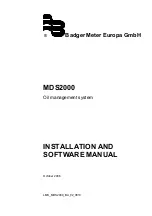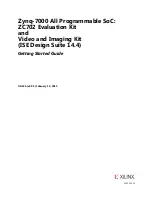
WARNING:
Read instructions completely before installation and retain for future reference.
WARNING:
WARNING:
OTHER CAUTIONS:
For installation and/or use in accordance with appropriate electrical codes and regulations.
Consult a qualified electrician for installation and operation.
1. For remote operation of Z-Wave compatible controls.
2. Use this device only with 75˚C rated copper or copper clad wire.
Model CA5100
Specifications:
Accessory Wall Switch Controller
Ratings:
Colors:
Connections:
RF Information:
Network Information:
Wireless RF Control
120VAC, 50/60Hz
Includes white, ivory, and light almond
snap-on rocker plates.
Black-Line, White-Neutral,
Green-Ground
Frequency: 908.42 MHz
Mesh Network - Each line powered
node acts as a repeater to route
distant signals.
Data Rate: 9600 bits/second
Size: 232 Z-Wave™ Nodes
Operating Temperature Range:
32°F (0°C) to 104°F (40°C)
Power Consumption: 2.0W Max
Minimum Range:
50ft indoor; 100ft outdoor
INSTALLATION:
1. WARNING: TO AVOID FIRE, SHOCK, OR DEATH, TURN OFF POWER AT CIRCUIT BREAKER AND
TEST THAT POWER IS OFF BEFORE WIRING.
Operation:
2. If using for a retrofit application, remove wall plate and disconnect switch.
; press
and hold top of rocker to transmit raise command; press and hold bottom of rocker to transmit lower
command.
(158CA12789).
3. Refer to wiring diagrams for proper connection of accessory switch.
4. Check that all wire connections are secure.
5. Place all wires inside junction box. Install accessory switch using (2) mounting screws furnished.
Complete installation with a decorator style wall-plate.
6. Reconnect your electrical power.
7.
Tap top of rocker to transmit on command; tap bottom of rocker to transmit off command
7. For programming instructions refer to the
InTouch Installer & Users Guide
The CA5100 Accessory Wall Switch Controller is a Z-wave™ enabled device which is
fully compatible with any Z-wave enabled network. Z-wave enabled devices display the
Z-wave logo and guarantee connectivity and interoperability between devices. Each
line powered node in a Z-wave network is designed to act as a repeater forming a mesh
network eliminating radio “dead spots” and providing the highest level of reliability.
- Multiple location On/Off & Raise/Lower control when used with Z-wave enabled
switches and dimmers.
- Pre-set scene control when used with up to 5
Features
Z-wave enabled devices.
- Full 229 device scene control when used with Intermatic InTouch™ server (CA5500B).
Rocker Color Conversion
The frame and rocker color of this device can be
converted to match interior design requirements.
Simply use one of the included color plates (white,
ivory, or light almond) and proceed as follows (please
note that the device must be removed from the junction
box to change the rocker, follow the installation
instructions and warnings).
1. Select the color of the face you desire.
2. The frame has snaps on its sides. Using a small
screwdriver or thumbnail, gently remove the frame and
rocker from the housing body.
3. Take the new frame and position it properly to the
housing body. Notice that the locking snaps will align in
only the proper direction. Line up the plastic snaps with
the slots in the housing body and snap into place.
4. The frame snaps in with an audible click. Ensure that
both snaps are secure. Replace the device in the
junction box following installation instructions.
The color conversion is complete.
Rocker
Frame Snap
FCC STATEMENT OF COMPLIANCE
WARNING! Changes or modifications not expressly approved by Intermatic Inc. could void the user’s authority to operate the
equipment.
This device complies with part 15 of the FCC rules. Operation of this device is subject to the following two conditions:
(1) This device may not cause harmful interference, and
(2) This device must accept any interference, including interference that may cause undesired operation.
NOTE: This equipment has been tested and found to comply with the limits for a Class B digital device, pursuant to Part 15 of the FCC Rules.
These limits are designed to provide reasonable protection against harmful interference in a residential installation. This equipment generates,
uses and can radiate radio frequency energy and, if not installed and used in accordance with the instructions, may cause harmful interference to
radio communications. However, there is no guarantee that interference will not occur in a particular installation. If this equipment does cause
harmful interference to radio or television reception, which can be determined by turning the equipment off and on, the user is encouraged to try to
correct the interference by one or more of the following measures:
-- Reorient or relocate the receiving antenna or device.
-- Increase the separation between the equipment and receiver.
-- Connect the equipment into an outlet on a circuit different from that to which the receiver is connected.
-- Consult the dealer or an experienced radio/TV technician for help.
























